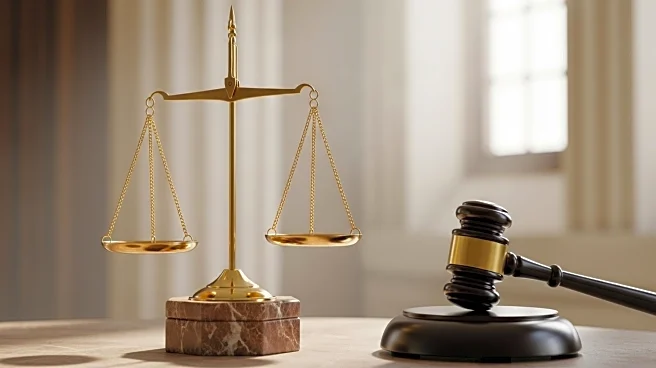What's Happening?
The Supreme Court recently heard oral arguments in the case of Chiles v. Salazer, which challenges a Colorado statute banning LGBTQ conversion therapy for minors. The statute is defended by Colorado on the grounds of a medical consensus that such therapies are harmful and fail to meet legitimate therapeutic criteria. During the proceedings, Justice Samuel Alito questioned the reliability of medical consensus, suggesting it can be influenced by ideology. Justice Amy Coney Barrett also expressed skepticism, framing the issue as one of differing views rather than professional consensus. These comments reflect a broader debate within the court regarding the role of expert opinion in legal decisions, particularly in cases involving originalism.
Why It's Important?
The questioning of medical consensus by Supreme Court justices has significant implications for how expert opinions are utilized in legal contexts. This skepticism could influence future rulings on cases involving scientific and medical evidence, potentially affecting public policy and the regulation of professional practices. The debate also highlights tensions within the court regarding originalism, a legal theory that relies heavily on historical and expert interpretations. The outcome of this case could impact the legal standing of conversion therapy bans and similar regulations across the United States, affecting LGBTQ rights and healthcare practices.
What's Next?
The Supreme Court's decision in Chiles v. Salazer will likely set a precedent for how medical and scientific consensus is treated in legal arguments. If the court rules against the Colorado statute, it may embolden challenges to similar bans in other states, potentially leading to broader legal debates about the role of expert opinion in shaping public policy. Stakeholders, including LGBTQ advocacy groups and medical professionals, are expected to closely monitor the case's outcome, which could influence future legislative efforts and judicial interpretations of First Amendment rights.
Beyond the Headlines
The skepticism expressed by some justices towards medical consensus raises ethical questions about the balance between expert opinion and judicial interpretation. This case underscores the potential for ideological biases to influence legal decisions, particularly in cases involving marginalized communities. The broader implications for originalism as a legal theory may also prompt discussions about the integrity and consistency of judicial reasoning, especially when historical interpretations are used to justify contemporary legal outcomes.










